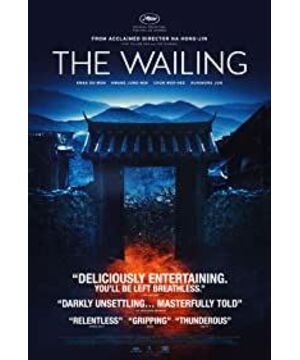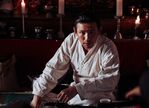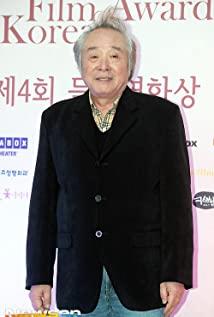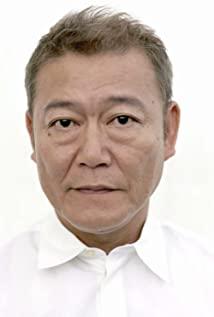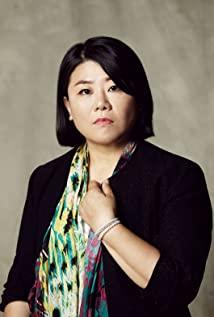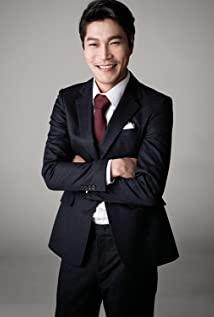Luo Hongzhen is probably the most anticipated genre author after the Korean director Park Chan Wook Bong Joon Hoo: The so-called "genre" represents his commercial nature, and the "author" shows his strong expression and directing intentions. Whether it is commercial or authorship, Luo Hongzhen's new play "The Wailing" (The Wailing, 2016) still has both, but "The Wailing" is completely different from Luo Hongzhen's previous works. Since "The Yellow Sea" (2010), it took Luo Hongzhen six years to hand in the "Cry" answer sheet. What changes did he make? The difference between "Cry" and Luo Hongzhen's previous films is that it is a type experiment, or at least an experiment and a subversion of his own type experience. On the surface, Luo Hongzhen’s past genre movies, regardless of "The Chaser" (The Chaser) Chaser, 2008) or "Yellow Sea", although the technique focuses on the director's style, or some anti-type design, but the overall theme is a more traditional crime movie; but "The Cry" is very complicated, although the overall context is viewed It seems to be the main line of hunting down the criminals, but the movie contains elements such as monsters, religions, and horror films, making the whole drama full of a strong unknown and uncertainty. Uncertainty refers not only to the "genre" of the movie, but also to the plot of the entire movie. After watching it, many viewers still feel that there is a cloud of fog and confusion between the good and the evil. I also understand the reason why many audiences don't like this film, because the vague language of the whole play seems to be playing with the audience, completely ignoring logic and rationality. But I think this is another experiment of his: instead of clearly telling the truth, it focuses more on depicting the characters’ fear under this uncertainty, and to guide the audience’s panic and anxiety, and in this kind of anxiety. To create the theme of the so-called drama and foil the interpretation of the film. It is said that in the finished version, Luo Hongzhen deleted some important scenes, and those deleted scenes are precisely to help the audience to foresee the good and evil of the characters more clearly, and to clarify the so-called logic and truth. But the fact is, if the audience has a definite judgment on the good and evil of the characters, the "ambiguity" that the film will test and the theme of the film will become weak. Luo Hongzhen's need to create ambiguity in "The Cry" is actually the "empathy" technique in the experimental script. Basically, the plot is to continuously guide the audience to believe and doubt everyone. When the audience has a sense of "empathy" for a character, the audience is confident and safe. But Luo Hongzhen subverted and broke this kind of "empathy" a lot in "The Cry": in the previous scene the audience surely believed in a good person, the next scene may completely change his face. Finally, there is a scene where Zhong Jiu wanders between the girl and the Korean wizard, which is the climax of the "empathy" technique. The trust of the characters and the audience floats repeatedly on the two characters, creating a strong sense of anxiety and reducing the confidence of the audience. The heart is completely broken: because it seems that no one is worthy of trust and reliance, and this indistinguishable atmosphere is truly frightening, frightening and desperate. In this atmosphere, no matter what choice the protagonist makes, it is undoubtedly a high Risky bets. On the other hand, Luo Hongzhen's play of "empathy" in the drama climax of "The Cry" this time is actually a subversion of his past self. Regardless of "Chaser" and "Yellow Sea", at the end of the play, there are always some very bloody scenes or action scenes. This is a routine climax mode of traditional commercial movies, but in "The Cry," Luo Hong Zhen actually completely abandoned this kind of action scenes and direct visual effects to pull the climax. Putting the focus on the characters and their psychology, the last scene of Zhong Jiu and the Japanese scenes cut back and forth. It took a long time to create that suspense. For me, it was more courageous and unconventional. practice. Of course, I think it is quite dangerous to choose this kind of approach. The obvious point is that he is very easy to offend the audience, because the repeated transitions seem to show off skills, and at the same time, it also breaks the audience’s trust. It will inevitably lead to some verbal criticism. The effect is not allowed. In terms of the structure of the genre, the climax of the whole play is actually missing the "scene climax" required by the genre, but instead is the "psychological climax", which only focuses on creating emotions and atmosphere. "Scene", do the audience buy it? Therefore, not only the characters in the play are uneasy, the audience is uneasy, but the creator must also be uneasy. And Luo Hongzhen's daring to do this experiment is worthy of recognition for me. He can repeat the experience of the previous work and continue to create scenes and blood at the end. It is easy, simple and effective, isn't it? I have always disliked too many "twisted bridge" movies, because most of them are playing with popular and clever tricks, but Luo Hongzhen's playing with "empathy" and turning has another meaning in my opinion, because This kind of technique actually caters to the theme of the movie. The film begins with "Luke" (Luke) to express the theme of "doubt"-"Why do you doubt?"-Why do people doubt? The doubts and fears after the trust is broken are traced back to the whole drama At the end, the Japanese dialogue echoes this theme. When you suspect that he is the devil, he is really the devil in your eyes. This kind of theme-first concept is also very rare in Luo Hongzhen's old works. Looking at Luo Hongzhen’s interview, he mentioned that his creative concept came from thinking about the proposition of “why would someone suffer”, but the movie presents a state of “chaos” without answers, just like a process of groping. Started with a little bit, and slowly deepened, but the result showed another aspect of complexity and ambiguity, just like the "doubt" he wanted to talk about, there is no conclusion, but just a review of the original sin of why people can't really "believe" . Because of this, the ambiguity and specious state in "The Cry" is justified in my opinion. "Cry" started with the incident that the "police" discovered the "homicidal case". On the surface, it created an illusion of a criminal type, which seemed to continue its own genre characteristics, but afterwards it was completely the path of a horror movie. Among them, he was completely passive and incompetent, and he was a victim in a horror movie. In fact, the essence of Luo Hongzhen’s type experiment is to completely abandon the type of crime experience he has obtained, and directly taste Try horror movies. Another type of experience that Luo Hongzhen gave up was that he changed the “urban” environment he had always been good at, and instead used the space of a mountain village to create conflicts in the whole play. It is easier to manage the so-called "atmosphere" in the entire environment and space of the mountain village than it is easier to manage the "scene" in the city. In the selection of sceneries and the details of the atmosphere design of many venues, it is evident that Luo Hongzhen's efforts in this regard And try. There are also a lot of religious elements in this film, but in this respect, I think his experiment was not very successful, rather self-defeating. Many times he was obsessed with showing the so-called spectacle characteristics of religion (such as the long rope jumping scene). More than a real discussion of religion itself. There are also Japanese character designs that seem to allude to some history during the Japanese occupation period, but under the background of the entire plot, the so-called metaphors and allusions are actually quite simple and functional. Even though I admit that "The Cry" has some problems like this, I still appreciate Luo Hongzhen's attempt. Under the circumstances of such a "good scene" in Korean movies, a high-profile genre film director can repeat his own experience. A crime movie every year is safe and secure, but he is willing to spend six years to sharpen a new film. It is not easy in itself to subvert some old thinking and try some experiments. Even if the work itself may not be so well-rounded and complete, and the experiment may not be so successful, it is commendable to me, because I see the creative steadfastness and composure, who said that shooting genre films does not require attention? Especially compared to the directors in our country who release new works every year, but can't even draw a gourd, this is even more valuable. To summarize something, I want to say: I will continue to look forward to Luo Hongzhen. ("Mixing Network") There are some problems like that, but I still appreciate Luo Hongzhen's attempt. Under the circumstances of such a "good scene" in Korean movies, a high-profile genre film director can repeat his own experience. A crime movie every year is safe and secure, but he is willing to spend six years to sharpen a new film. It is not easy in itself to subvert some old thinking and try some experiments. Even if the work itself may not be so well-rounded and complete, and the experiment may not be so successful, it is commendable to me, because I see the creative steadfastness and composure, who said that shooting genre films does not require attention? Especially compared to the directors in our country who release new works every year, but can't even draw a gourd, this is even more valuable. To summarize something, I want to say: I will continue to look forward to Luo Hongzhen. ("Mixing Network") There are some problems like that, but I still appreciate Luo Hongzhen's attempt. Under the circumstances of such a "good prospect" in Korean movies, a high-profile genre film director can repeat his own experience. A crime movie every year is safe and secure, but he is willing to spend six years to polish a new film. It is not easy in itself to subvert some old thinking and try some experiments. Even if the work itself may not be so well-rounded and complete, and the experiment may not be so successful, it is commendable to me, because I saw the creative steadiness and composure. Who said that you don’t need to be careful to shoot a genre film? Especially compared to the directors in our country who release new works every year, but can't even draw a gourd, this is even more valuable. To summarize something, I want to say: I will continue to look forward to Luo Hongzhen. ("Mixing Network")
View more about The Wailing reviews


